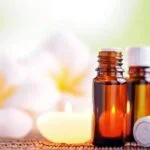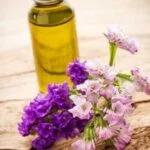Aromatherapy has long been hailed for its potential to reduce anxiety, offering a natural and holistic approach to managing this common mental health concern. In this blog post, we will explore the concept of aromatherapy and its effects on anxiety, providing a comprehensive overview of this alternative therapy.
From understanding anxiety and the impact it can have on daily life to delving into specific essential oils and scents believed to alleviate anxiety, we will examine the research and evidence behind aromatherapy’s effectiveness. Whether you are new to aromatherapy or looking to incorporate it into your daily routine, this blog post aims to offer insights and practical tips for harnessing the potential benefits of aromatherapy in reducing anxiety.
Anxiety is a pervasive issue that affects millions of individuals worldwide, often interfering with their emotional well-being and ability to function optimally in various aspects of life. Understanding the impact of anxiety on mental health and exploring potential solutions such as aromatherapy is crucial in addressing this prevalent concern. By delving into the science behind aromatherapy and its potential benefits, we aim to provide valuable information for individuals seeking natural remedies for managing anxiety.
Throughout this blog post, we will not only define what aromatherapy entails but also discuss specific essential oils and scents that are believed to possess anxiety-reducing properties. Additionally, scientific studies and research exploring the effects of aromatherapy on anxiety will be examined, offering evidence-based insights into the efficacy of this alternative therapy.
Whether you are curious about incorporating aromatherapy into your self-care routine or seeking evidence-based information on its potential benefits, this blog post aims to shed light on the effectiveness of aromatherapy in reducing anxiety.
Understanding Anxiety
Anxiety is a common mental health condition that can manifest in various ways, including feelings of worry, fear, and unease. For many individuals, anxiety can significantly impact their daily lives, affecting their ability to concentrate, sleep, and maintain healthy relationships. It may also lead to physical symptoms such as muscle tension, rapid heartbeat, and fatigue. The persistent nature of anxiety can be debilitating, making it essential to address the condition effectively.
Anxiety can arise from various sources, including stress related to work or personal life, traumatic events, or underlying health conditions. While it is normal for individuals to experience occasional anxiety in response to certain situations or challenges, chronic anxiety that does not improve over time may indicate the need for professional intervention and support.
The impact of anxiety on mental health and daily life cannot be understated. It is crucial for individuals experiencing symptoms of anxiety to seek appropriate help and explore various strategies for managing their condition. One such strategy that has gained attention in recent years is aromatherapy.
What Is Aromatherapy?
Aromatherapy is a holistic healing treatment that uses natural plant extracts to promote health and well-being. These plant extracts are often referred to as essential oils and are derived from different parts of plants through processes like distillation or cold pressing. The use of aromatherapy dates back thousands of years and has been traditionally employed for its therapeutic properties.
Potential Benefits
Aromatherapy is believed to have numerous potential benefits for mental and emotional well-being. By inhaling the aroma of essential oils or applying them topically, individuals may experience a range of effects including relaxation, stress reduction, improved mood, and possibly even reduced anxiety symptoms. The sedative effects of certain essential oils have led to speculation about their potential role in calming the mind and alleviating feelings of anxiousness.
Aromatherapy Explained
Aromatherapy is a complementary therapy that utilizes essential oils and scents to promote overall well-being. The practice involves the use of natural plant extracts to stimulate the smell receptors in the nose, which then send signals to the limbic system – the part of the brain that controls emotions.
This process is believed to have a subtle but powerful impact on emotions, mood, and even physical health. In this section, we will delve deeper into how aromatherapy works and its potential benefits for reducing anxiety.
Aromatherapy and Anxiety Reduction
Aromatherapy has been used for centuries as a natural way to alleviate stress and anxiety. The soothing aroma of essential oils not only creates a pleasant olfactory experience, but it can also have a calming effect on the mind and body. Certain scents are believed to possess anxiolytic properties, meaning they may help reduce anxiety levels and promote relaxation.
Potential Benefits of Aromatherapy for Anxiety
Advocates of aromatherapy suggest that inhaling certain essential oils can help lower cortisol levels, which is known as the “stress hormone.” By doing so, aromatherapy may help individuals feel more relaxed and less anxious. Some common scents used for anxiety reduction include lavender, bergamot, chamomile, and rose geranium. These essential oils are thought to have sedative effects that can aid in calming nerves and uplifting mood.
Furthermore, aromatherapy can also provide individuals with a sense of control over their environment and emotions. Engaging in a calming scent ritual through diffusing or topical application may serve as a form of self-care that empowers individuals in managing their anxiety symptoms. As such, incorporating aromatherapy into daily routines may be an adjunctive approach to traditional treatments for anxiety disorders.
In summary, while aromatherapy shows promise in reducing anxiety symptoms through its pleasant scents and potential physiological effects, it is important to recognize that individual responses may vary. Further scientific research is necessary to fully understand the mechanisms behind how aromatherapy affects mental health and to determine its efficacy for various types of anxiety disorders.
Oils and Scents for Anxiety
Aromatherapy has been gaining attention for its potential to reduce anxiety and promote relaxation. Certain essential oils and scents are believed to have calming properties that can help alleviate the symptoms of anxiety. These natural remedies are often used as complementary or alternative therapies to traditional treatments for anxiety disorders. In this section, we will explore specific oils and scents that are commonly recommended for anxiety reduction, as well as the potential mechanisms behind their effectiveness.
Lavender oil is one of the most popular essential oils used in aromatherapy for anxiety. Research has shown that inhaling the scent of lavender can help lower heart rate and blood pressure, which are physical symptoms often associated with anxiety. Additionally, studies have suggested that lavender oil may have anxiolytic effects, meaning it may help reduce feelings of nervousness and tension.
Another commonly cited essential oil for anxiety is chamomile. Known for its soothing properties, chamomile oil is often used in aromatherapy to promote relaxation and ease stress. The pleasant scent of chamomile may have a calming effect on the mind, making it a popular choice for individuals seeking natural remedies for managing anxiety.
In addition to lavender and chamomile, other essential oils such as bergamot, rose, and frankincense are also believed to possess anxiety-reducing properties. These scents are often incorporated into aromatherapy practices aimed at promoting emotional well-being and reducing symptoms of stress and anxiety.
| Essential Oil/Scent | Potential Effects |
|---|---|
| Lavender | Lower heart rate and blood pressure; anxiolytic effects |
| Chamomile | Promotes relaxation; eases stress |
| Bergamot, Rose, Frankincense | Anxiety-reducing properties; promotes emotional well-being |
It is important to note that while these essential oils and scents are widely used in aromatherapy practices for anxiety reduction, individual responses may vary. Some people may find certain scents more effective than others based on personal preferences and sensitivities. Additionally, the use of aromatherapy should be approached with caution if you have allergies or sensitivities to strong odors.
Overall, while there is anecdotal evidence supporting the use of aromatherapy for anxiety reduction, further research is needed to fully understand the effectiveness of specific oils and scents in managing clinical anxiety disorders. However, many individuals find the use of these natural remedies to be a valuable addition to their self-care routines when dealing with feelings of stress and anxiousness.
By incorporating these natural remedies into daily routines through methods such as diffusing or topical application, individuals can explore the potential benefits of aromatherapy in promoting emotional wellness and managing symptoms of anxiety.
Research and Evidence
When it comes to the question of whether aromatherapy reduces anxiety, the answer is not entirely straightforward. While there is a growing body of research on the topic, the evidence is not universally conclusive. However, there have been numerous studies that suggest aromatherapy may have a positive impact on anxiety levels.
One study published in the Journal of Clinical Psychiatry found that participants who received aromatherapy massage experienced a significant reduction in anxiety compared to those who received regular massage without essential oils. Another study published in Complementary Therapies in Clinical Practice reported that inhaling lavender essential oil reduced anxiety levels in patients waiting for dental treatment.
On the other hand, some research has challenged the effectiveness of aromatherapy in reducing anxiety. A review published in the Journal of Alternative and Complementary Medicine concluded that while there is some evidence supporting the anxiolytic effects of certain essential oils, more high-quality research is needed to draw definitive conclusions.
Despite differing results, it’s clear that there is a compelling body of evidence suggesting that aromatherapy may play a role in reducing anxiety for some individuals. As with any complementary therapy, it’s important for individuals to consider their own experiences and seek guidance from healthcare professionals when incorporating aromatherapy into their anxiety management strategy.
Aromatherapy Techniques
When it comes to using aromatherapy for anxiety reduction, there are various techniques that individuals can explore. One of the most common methods is diffusing essential oils.
This involves using a diffuser to disperse the aroma of the oil throughout a room, allowing individuals to breathe in the scent and potentially experience its calming effects. Another popular technique is topical application, which involves diluting essential oils with a carrier oil and applying them directly to the skin, such as through massage or by adding them to bathwater.
Inhalation is also a widely used aromatherapy technique for anxiety reduction. This can be done by inhaling essential oil vapors directly from the bottle, adding a few drops of oil to a tissue or cotton ball and inhaling, or using personal inhalers designed for aromatherapy use. Each of these techniques allows individuals to benefit from the potential anxiety-reducing properties of certain essential oils in different ways.
Incorporating aromatherapy into daily routines can be a simple yet effective way to manage anxiety. Whether it’s by diffusing calming scents at home, applying essential oils topically before bedtime, or carrying a personal inhaler for on-the-go use, individuals have the flexibility to tailor their aromatherapy practices according to their specific needs and preferences.
This variety of techniques provides opportunities for individuals to find what works best for them in terms of reducing anxiety and promoting overall well-being.
Personal Stories and Experiences
Aromatherapy has been gaining attention as a potential natural remedy for reducing anxiety. Many individuals have turned to essential oils and scents to help manage their feelings of unease and worry. Personal stories and experiences can provide valuable insight into the effectiveness of aromatherapy in anxiety reduction.
Benefits of Aromatherapy for Anxiety Reduction
- Lavender oil: Many people have reported feeling calmer and more relaxed after inhaling the scent of lavender oil. Its soothing aroma is believed to have a calming effect on the mind, making it a popular choice for managing anxiety.
- Chamomile oil: Chamomile has long been known for its relaxation-inducing properties. Inhaling the scent of chamomile oil is said to promote feelings of tranquility and ease stress and tension.
- Bergamot oil: Bergamot has citrusy notes that are thought to uplift mood and alleviate symptoms of anxiety. Some individuals find that diffusing bergamot oil creates a sense of positivity and calmness.
Personal Testimonials
There are numerous firsthand accounts from individuals who have incorporated aromatherapy into their anxiety management routine with positive results. Many report feeling less anxious, more at ease, and better able to cope with stressful situations after using essential oils or scents.
One individual shared their experience with diffusing lavender oil at home before bedtime, noting that it helped them relax and unwind after a long day. Another person mentioned carrying a rollerball of chamomile oil to use as a calming aid during particularly stressful moments at work.
Using aromatherapy as part of a holistic approach to managing anxiety employs various methods such as diffusion, topical application, or inhalation. By integrating aromatherapy into daily routines, many people have found relief from the symptoms of anxiety. While personal stories cannot serve as conclusive evidence, they do offer valuable insight into the potential impact of aromatherapy on anxiety reduction.
Conclusion
In conclusion, the question “Does aromatherapy reduced anxiety?” is one that has garnered significant attention and interest within the realm of alternative medicine and mental health. Throughout this blog post, we have explored the concept of aromatherapy and its potential effects on anxiety, delving into the understanding of anxiety itself, the explanation of aromatherapy, specific oils and scents believed to reduce anxiety, research evidence supporting or refuting its effectiveness, various aromatherapy techniques, and personal stories and experiences.
While there is anecdotal evidence and some scientific studies suggesting that certain essential oils and scents used in aromatherapy may help reduce anxiety symptoms for some individuals, it is important to acknowledge that results can vary from person to person. The potential benefits of using aromatherapy for anxiety reduction should be considered alongside other forms of treatment and management.
As we reflect on the topic of aromatherapy’s impact on anxiety, it is crucial to recognize that further exploration and research are needed to fully understand its potential benefits and limitations. By encouraging open-mindedness towards complementary approaches like aromatherapy while simultaneously advocating for continued scientific inquiry in this field, we can work towards a more comprehensive understanding of how different methods may contribute to mental health and well-being.
Frequently Asked Questions
Does Aromatherapy Actually Work for Anxiety?
Aromatherapy has been shown to have a positive impact on anxiety for some people. The use of certain essential oils, such as lavender and chamomile, can help to promote relaxation and reduce feelings of stress.
What Is the 3 3 3 Rule for Anxiety?
The 3 3 3 rule for anxiety involves naming three things you see, hear, and feel when experiencing an anxiety attack. This grounding technique helps bring your focus back to the present moment and can alleviate some of the symptoms of anxiety.
What Essential Oil Is Best for Anxiety?
There are several essential oils that are commonly used for anxiety, but one of the most popular is lavender oil. Lavender has calming properties that can help to reduce feelings of stress and promote a sense of relaxation. Other essential oils that may be beneficial for anxiety include chamomile, bergamot, and frankincense.

Are you looking for a natural way to improve your health and wellbeing?
If so, aromatherapy may be the answer for you.





